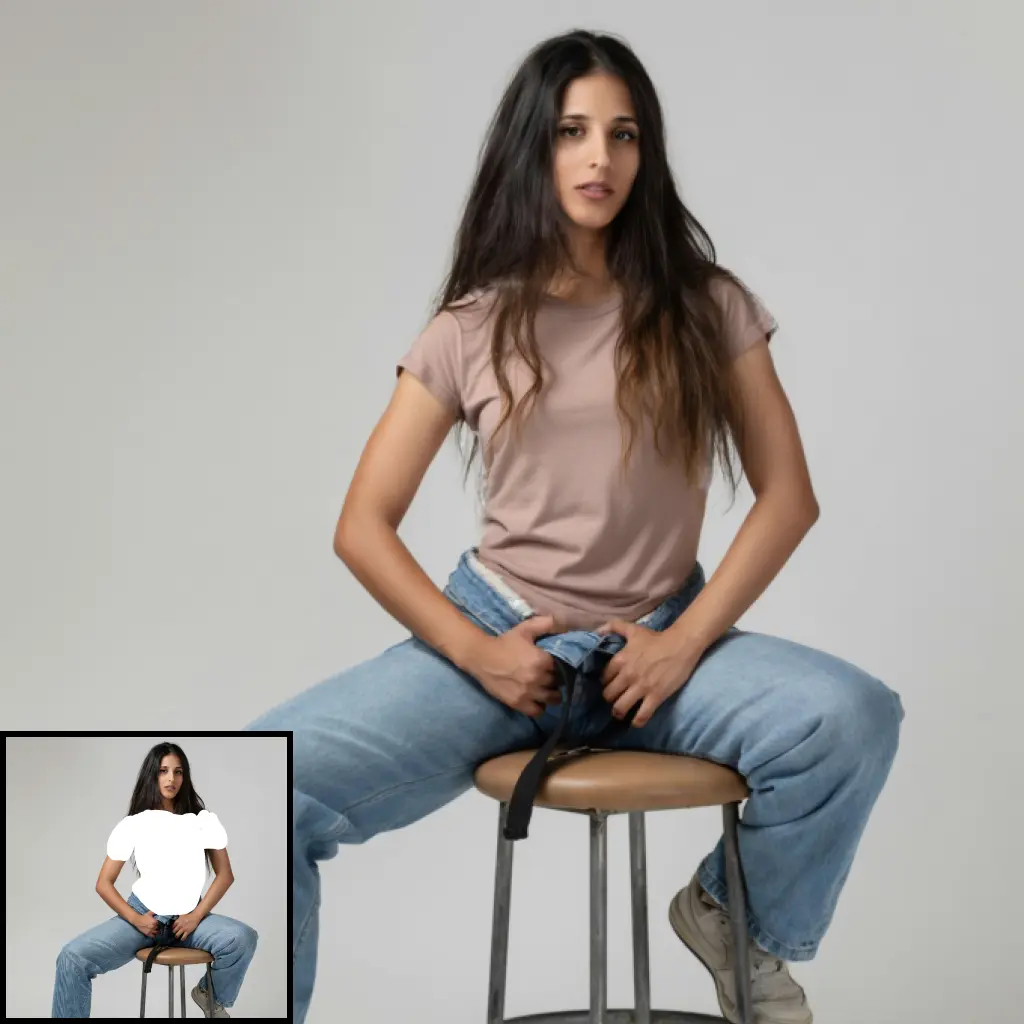ComfyUI Node: Depth Anything V2 - Relative
DepthAnythingV2Preprocessor
CategoryControlNet Preprocessors/Normal and Depth Estimators
Fannovel16 (Account age: 3416days) Extension
ComfyUI's ControlNet Auxiliary Preprocessors Latest Updated
2025-03-11 Github Stars
2.84K
How to Install ComfyUI's ControlNet Auxiliary Preprocessors
Install this extension via the ComfyUI Manager by searching for ComfyUI's ControlNet Auxiliary Preprocessors- 1. Click the Manager button in the main menu
- 2. Select Custom Nodes Manager button
- 3. Enter ComfyUI's ControlNet Auxiliary Preprocessors in the search bar
Visit ComfyUI Online for ready-to-use ComfyUI environment
- Free trial available
- 16GB VRAM to 80GB VRAM GPU machines
- 400+ preloaded models/nodes
- Freedom to upload custom models/nodes
- 200+ ready-to-run workflows
- 100% private workspace with up to 200GB storage
- Dedicated Support
Depth Anything V2 - Relative Description
Estimate depth from images using advanced machine learning for enhanced realism and accuracy in visual projects.
Depth Anything V2 - Relative:
The DepthAnythingV2Preprocessor is a powerful tool designed to estimate depth information from images, making it an essential component for AI artists working with 3D modeling, augmented reality, and other applications requiring depth perception. This node leverages advanced machine learning models to generate depth maps, which can be used to understand the spatial structure of a scene. By providing a detailed depth estimation, it enhances the realism and accuracy of your projects, allowing for more sophisticated and immersive visual experiences. The node is particularly useful for tasks that require precise depth information, such as object detection, scene reconstruction, and virtual environment creation.
Depth Anything V2 - Relative Input Parameters:
ckpt_name
The ckpt_name parameter specifies the pre-trained model checkpoint to be used for depth estimation. You can choose from a list of available checkpoints, each tailored for different levels of accuracy and performance. The options include depth_anything_v2_vitg.pth, depth_anything_v2_vitl.pth, depth_anything_v2_vitb.pth, and depth_anything_v2_vits.pth, with depth_anything_v2_vitl.pth being the default. Selecting the appropriate checkpoint can impact the quality and speed of the depth estimation, so choose based on your specific needs and the complexity of your images.
resolution
The resolution parameter determines the resolution at which the depth estimation is performed. The default value is 512, but you can adjust this based on the desired level of detail and computational resources available. Higher resolutions provide more detailed depth maps but require more processing power and time. Conversely, lower resolutions are faster but may lack finer details.
Depth Anything V2 - Relative Output Parameters:
IMAGE
The output parameter IMAGE is the generated depth map, which represents the estimated depth information of the input image. This depth map is a grayscale image where the intensity of each pixel corresponds to the relative depth of that point in the scene. Lighter areas indicate closer objects, while darker areas represent objects that are further away. This output can be used in various applications, such as enhancing 3D models, creating depth effects in images, or improving object detection algorithms.
Depth Anything V2 - Relative Usage Tips:
- For indoor scenes, use the
depth_anything_v2_vitl.pthcheckpoint to achieve better accuracy in depth estimation. - Adjust the
resolutionparameter based on your computational resources; higher resolutions provide more detail but require more processing power. - Use the generated depth map to enhance the realism of your 3D models by incorporating accurate depth information.
Depth Anything V2 - Relative Common Errors and Solutions:
Model file not found
- Explanation: This error occurs when the specified checkpoint file is not found in the expected directory.
- Solution: Ensure that the checkpoint file name is correct and that the file is located in the appropriate directory.
CUDA out of memory
- Explanation: This error happens when the GPU runs out of memory while processing high-resolution images.
- Solution: Reduce the
resolutionparameter or use a machine with more GPU memory.
Invalid image format
- Explanation: This error occurs if the input image is not in a supported format.
- Solution: Convert the input image to a supported format such as JPEG or PNG before processing.
Model loading failed
- Explanation: This error indicates that the model checkpoint could not be loaded, possibly due to corruption or incompatibility.
- Solution: Verify the integrity of the checkpoint file and ensure it is compatible with the DepthAnythingV2Preprocessor.
Depth Anything V2 - Relative Related Nodes
RunComfy is the premier ComfyUI platform, offering ComfyUI online environment and services, along with ComfyUI workflows featuring stunning visuals. RunComfy also provides AI Models, enabling artists to harness the latest AI tools to create incredible art.


